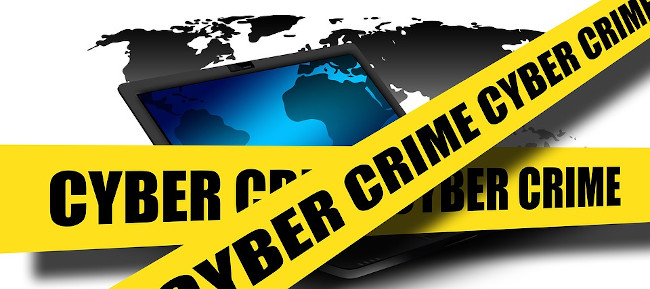Cyber Infrastructure: Who Are the Invisible Warlords?

“It takes 20 years to build a reputation and few minutes of cyber-incident to ruin it.” —Stephane Nappo
In our networked world, cyberattacks pose a tremendous threat to governments, private companies, and individuals alike.
Our societies have become tremendously dependent on information and communications infrastructure. Both private and public institutions depend on cyber infrastructure to function efficiently. Energy, transportation, communications, and financial services depend on IT systems, and they are all at risk.
Failing technology, unauthorized access, data manipulation, and system breakdown threaten the integrity of our society. Hacking anything from elections to national banks, cybercriminals have caused tremendous damage over the last few years.
Delinquent governments have notably initiated large-scale, politically and financially motivated attacks on numerous countries, including the U.S. North Korea’s government stands alone as the only nation to focus on hacking for monetary gain. Its military intelligence division, the Reconnaissance General Bureau (RGB), actively trains hackers to attack foreign banks and other financial institutions worldwide. Recently, American journalists conducted a lengthy investigation that revealed the RGB’s inner workings. China, North Korea, and Russia are home to some of the world’s most brilliant coders, and those talents are routinely weaponized to harm our nation’s interests.

In North Korea, children who excel at mathematics are recruited at an early age and put into special programs that lead to a position in the RGB. According to The New Yorker, this results in a life of virtual slavery for young men who are qualified enough to get some of the most coveted positions in technology companies.
The magazine referred to North Korea’s cybercrime program as “hydra-headed,” focusing on everything from hacking banks to stealing millions of dollars’ worth of cryptocurrency from online exchanges. According to a United Nations report that made headlines in 2019, North Korea’s criminal cyberattacks have “generated an estimated $2 billion for its weapons of mass destruction programs.”
Meanwhile, China has done its share of stealing patents, and Russia has been accused of attempting to influence elections in several countries, including the U.S.
China was allegedly behind one of the largest data breaches in history. Between 2014 and 2018, Marriott International’s system was hacked, compromising personal and financial information about 500 million customers. The New York Times attributed the attack to “a Chinese intelligence-gathering effort that also hacked health insurers and the security clearance files of millions more Americans.” In 2018, the newspaper spoke to intelligence officials who said the government-sponsored Chinese hackers had been working to build a database of U.S. government officials with security clearances.
Since the Marriott hack was discovered, threats have only escalated, especially during the COVID-19 pandemic. In this scenario, catastrophic cyberthreats are more pressing than ever.
With enough knowledge and resources, hackers could plunge whole cities into darkness or tamper with water supplies and shut down critical pipelines. In fact, some of these things have already happened on U.S. soil, and unless we ramp up our cybersecurity efforts, they are not going to stop.

America vs. Cyber Threats
America currently faces serious national security threats on several fronts. Terrorism is rampant around the world; armed conflicts put our interests at risk; and various foreign nations are developing weapons of mass destruction. Money-laundering and fraud affect Americans and drain U.S. taxpayer dollars, while drug-trafficking spreads violence and death across our nation.
Dealing with these threats costs billions of dollars every year, yet the fastest, most invisible threat does not involve weapons, killing, or hostage situations. Cyberthreats have the potential to cause a financial collapse, health crises, and influence local elections. Countries like China and Russia have already demonstrated they have armies of hackers at their disposal.
Terrorists and hostile governments alike could hack into government networks and leave entire cities without power. They could hack into financial institution networks and completely disrupt finance. Beyond Earth, they could potentially cause satellites to crash and rockets to change their course.

In the popular French TV show, The Bureau, a group of Russian hackers stationed in Cambodia hack into European networks. Among other things, they render an entire German hospital’s systems useless. Unable to use life signs monitoring, doctors fear that patients could die if administrators do not regain access to their computers.
In the end, a security expert fixes the problem, but the hackers have already cloned the hospital’s system without leaving a trace. The only thing in the episode that seemed unrealistic is that a single security expert could quickly fix the issue. The rest is frighteningly real.
Innovation has changed the face of the Earth over the last decade, but our increasing reliance on the internet has also made us vulnerable. The cyberattacks we have already endured have proved that we are not doing enough to secure our government networks and data. We are losing billions of dollars to cybercrime every year, and there is no telling how far a malicious attack could undermine our national security.
U.S. politicians have often disagreed about how to deal with cyberthreats. While some lobby for more stringent federal rules, others argue that regulations are not dynamic enough to respond to fast-changing threats. The danger of implementing hard rules, the latter believe, is that it could create a false sense of security, thus making organizations more vulnerable to sophisticated attacks. This mindset doesn’t seem very helpful in the light of the latest devastating attacks. Considering the dangers that loom on the horizon, doing nothing is not an option.

In February 2021, a bipartisan group of legislators introduced the Cyber Diplomacy Act of 2021, which proposes an approach that greatly differs from the Trump administration’s strategies to counter cyberthreats. The act vows to promote U.S. leadership in the cybersecurity field, establishing an Office of International Cyberspace Policy within the State Department.
According to one of its sponsors, House Democrat Jim Langevin (RI), the bill will “best position the United States to reclaim its role as a global leader inside the diplomacy realm, which is particularly urgent given the ever-changing array of threats that we face.”
Rep. Langevin and his co-sponsors believe that diplomacy is a vital tool to combat cyberthreats. According to former State Department cybersecurity coordinator Christopher Painter, the legislation aims to “shape a more positive environment.” While these efforts seem commendable, they are insufficient; it is unlikely that diplomacy will work with the likes of North Korea.
This chapter is excerpted from Reframing America's Infrastructure - A Ruins to Renaissance Playbook by Marc Gravely. Published with permission.
Highbrow Magazine
Image Sources:
--Madartz Graphics (Pixabay, Creative Commons)
--Geralt (Pixabay, Creative Commons)
--Donkey Hote (Flickr, Creative Commons)
--Kristina Alexanderson (Flickr, Creative Commons)































































































































































































































































































































